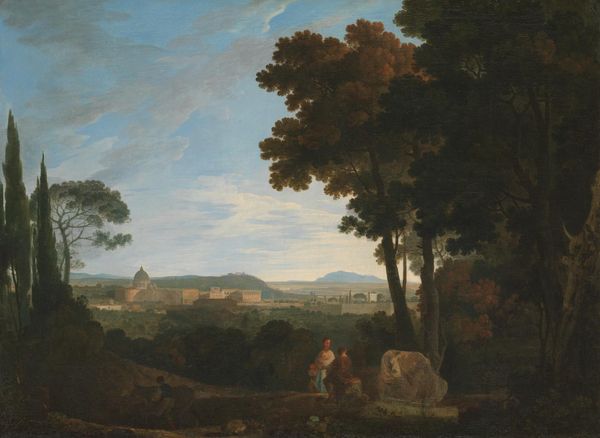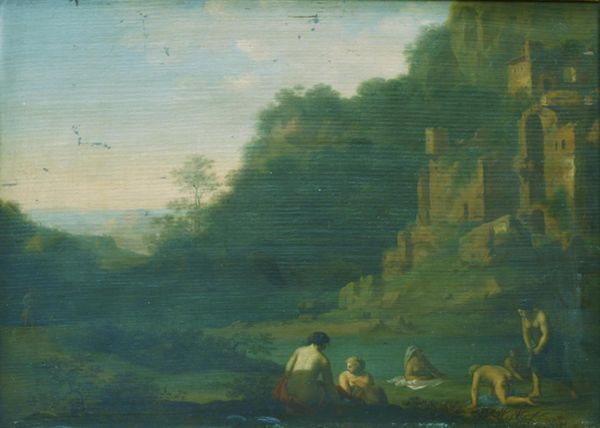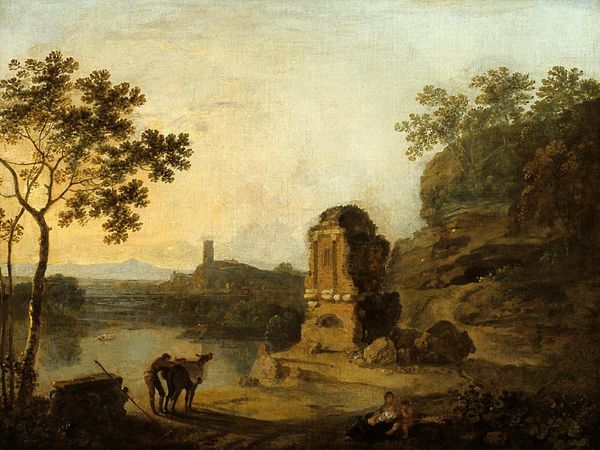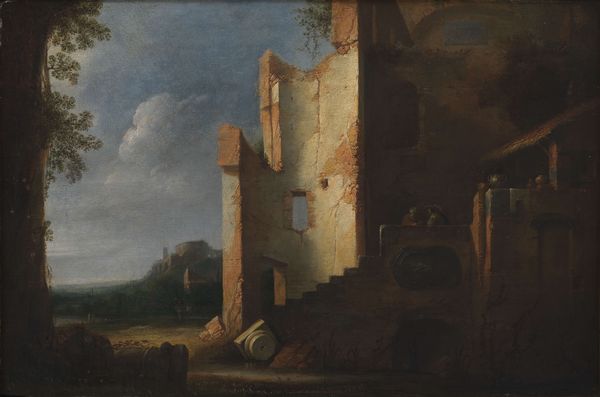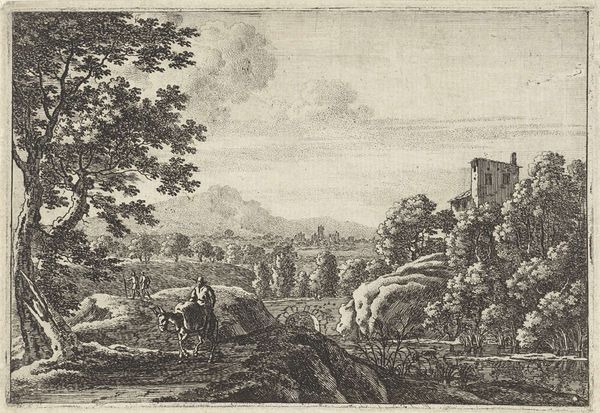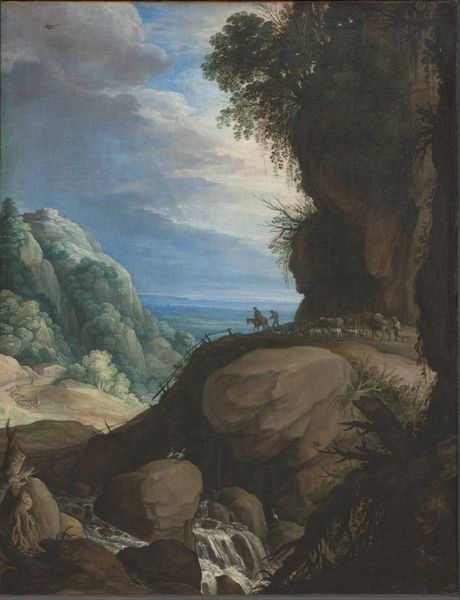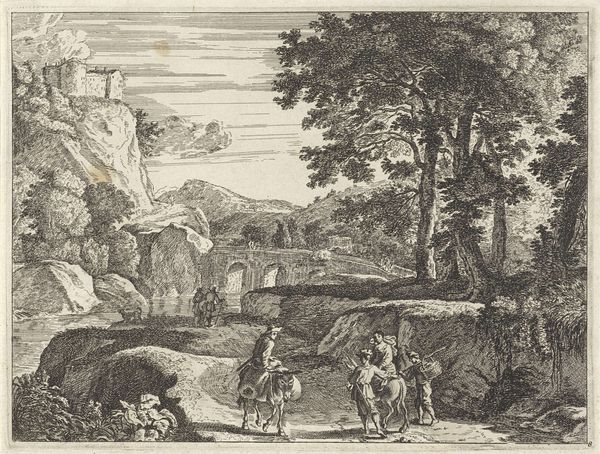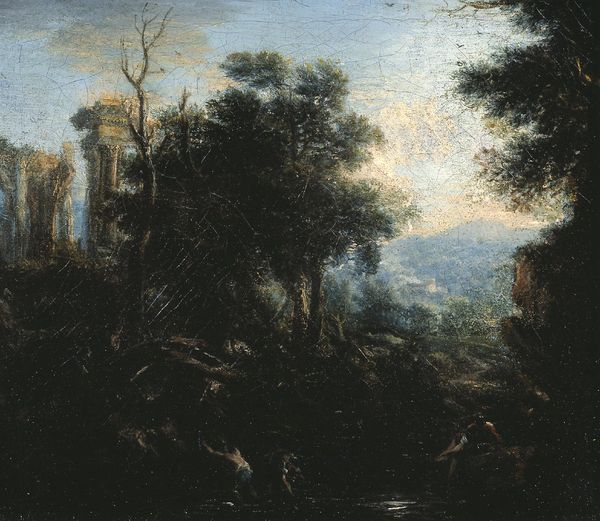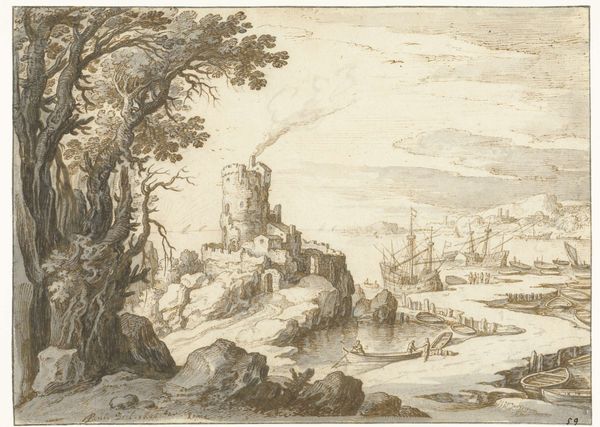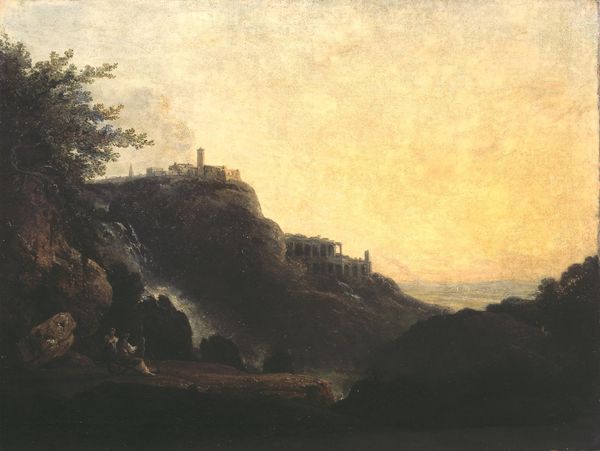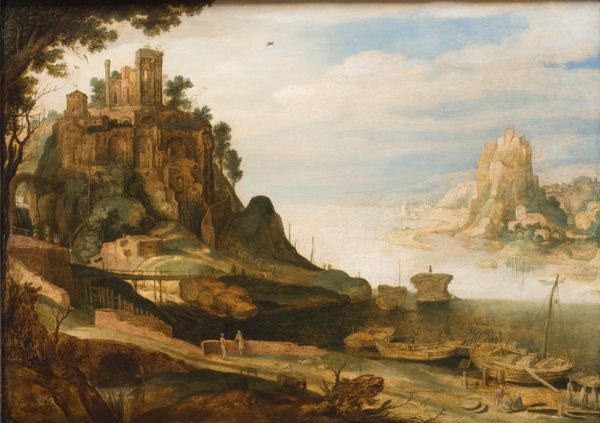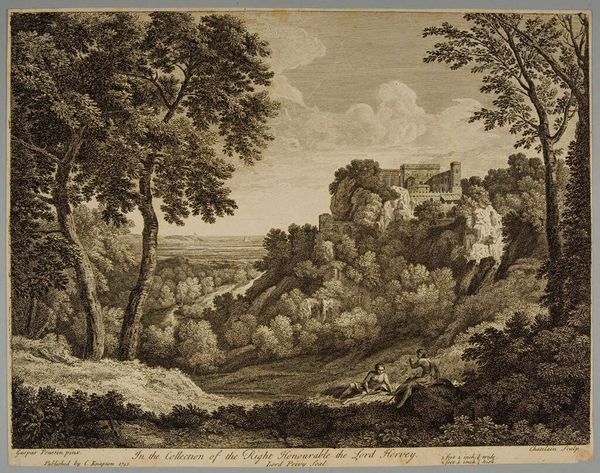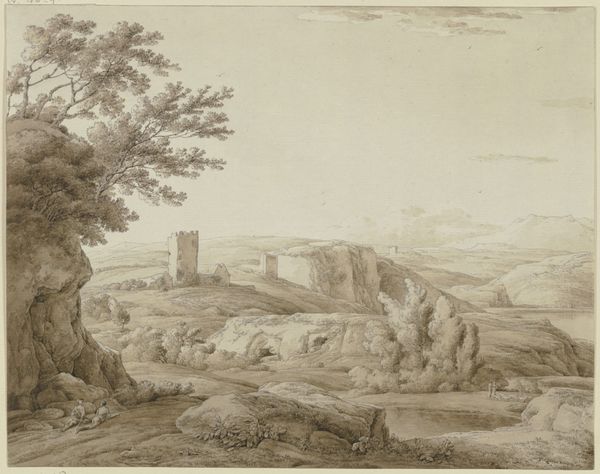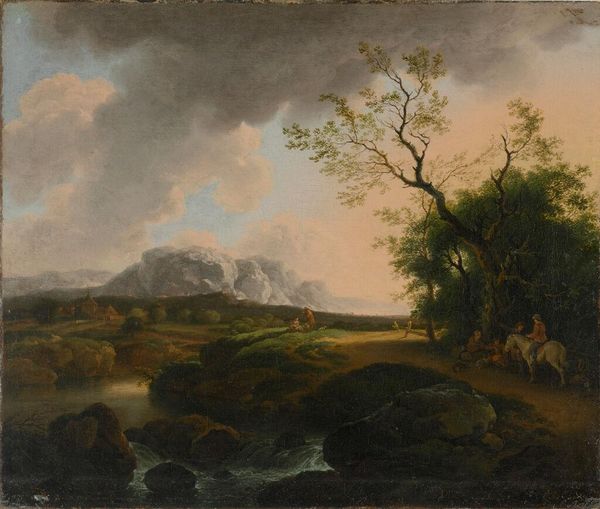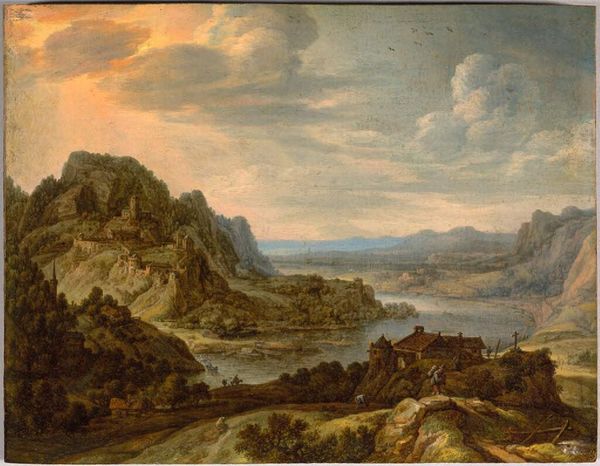
oil-paint
#
baroque
#
oil-paint
#
landscape
#
perspective
#
romanesque
#
oil painting
#
cityscape
#
history-painting
#
academic-art
#
realism
Copyright: Public domain
Editor: This is Paul Bril's "Landscape with a Hunting Party and Roman Ruins", executed in oil. What strikes me is the contrast: the ruined grandeur of Rome against the seemingly simple, everyday activity of the hunt. It feels like a statement about the passage of time. How do you interpret this juxtaposition? Curator: You've hit upon something crucial. These landscapes, seemingly bucolic, were often charged with commentary on power, legacy, and the shifting sands of history. The Roman ruins are not just picturesque backdrops; they represent a fallen empire, a lost order. Bril is placing the leisure activities of his patrons - the hunting party - against the backdrop of vanished authority, inviting reflection on the fleeting nature of earthly power. Do you think the painting subtly critiques or celebrates that power? Editor: That's a great question! Perhaps a little of both? The hunting scene suggests a continuation of aristocratic privilege, but its small scale relative to the ruins might imply that even their power is insignificant compared to the vastness of history. The city in the far distance is also quite small and insignificant to the crumbling foreground structures. Curator: Precisely! Bril's work participates in a visual dialogue prevalent in his era: one that uses landscape not as a mere backdrop but as a stage for political and social narratives. The inclusion of ruins in landscapes became a way for artists, and subsequently patrons, to contemplate their place within a larger historical trajectory, or to use these images as justification for displays of power. How does understanding this context change your initial view of the artwork? Editor: It definitely makes me see it as more than just a pretty picture. I am interested in that distant city! Knowing the socio-political weight makes it richer, like there are layers beneath the surface. Thank you for sharing that insightful perspective! Curator: And thank you for your keen observations! It is through this type of exchange we appreciate how art, far from being static, is always in conversation with its world.
Comments
No comments
Be the first to comment and join the conversation on the ultimate creative platform.
